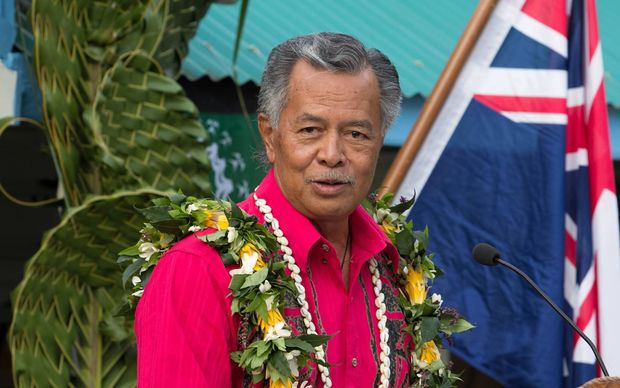RAROTONGA, 21 FEBRUARY 2020 (COOK ISLANDS NEWS) – Cutting the drink-drive limit to 250mcg is a stopgap measure, but the real solutions will come from our homes, families and communities.
We have all lost people to drink-drive tragedies, we have all made mistakes.
Now, says Cook Islands Prime Minister Henry Puna, it’s time to learn from our own mistakes and discuss enduring changes to our booze culture.
“It’s something we need to start talking about as a community,” he said.
“It must involve a change of culture. We’ve grown up in a culture of drinking. We’ve grown up used to the idea that if you want to have a good time, you’ve got to go out somewhere and drink. We need to start examining that culture.
“I think we need to learn from our own mistakes. As I said, enough is enough. We must do something, and that is what we’re doing.”
The Government will introduce a road safety bill to Parliament next month, cutting the drink-drive limits from 400mcg to 250mcg breath alcohol. But Puna said that, the helmet law and the cellphone-driving ban were just “stop-gap measures’.
The bigger, long-term picture was cultural change – and that required everyone in the community to work together to find solutions, and to change their own behaviour.
“The statistics from the police are very compelling. All of the fatal accidents in the past five years, all 24 of them, happened because of drink-driving and speeding. For me, the base element there is the drinking.
“Road safety must be an ongoing issue. I applaud Mr Mona Ioane’s appearance in an ad on TV, bravely using his son’s passing away as an incentive to inspire young people and parents to do something collectively to address this plague that has hit our country, sadly.
In the longer term, he backed a Police call for “zero tolerance” for drinking alcohol then driving – in other words, a zero breath alcohol limit. It was time to start talking about that.
“They should know because they’re right in the front-line. They’re the ones who are dealing with this problem – but it must be a community discussion, a community effort.”
We must all learn from our mistakes: “We’ve all been affected personally, in one way or the other, with all the fatalities that are happening on our roads. And I know that those experiences are what is inspiring us as a community to take some action now.”
Meanwhile, the community has failed to address the causes of road smashes – and that’s why there is now no choice but to put in place a helmet law to minimise the tragic effects of the crashes.
That’s the firm message from the new president of Cook Islands Road Safety Council, to those in the community unhappy at a helmet law.
New road safety president Daniel Mataroa said there has been a lack of awareness from the community in addressing the main causes of road fatalities, resulted in the need for a helmet law.
The onus was on the community to address alcohol, and the choices young people make after drinking, which are the root causes of road fatalities in Rarotonga.
Leaving such issues to government for solutions would mean tougher laws, which some members of public may not agree with, Mataroa said.
The proposed changes to the road safety laws, especially the helmet law, have attracted backlash from some members of the public who believe the current legislation is sufficient to deal with road safety issues.
But Mataroa said a spate of fatal crashes involving young people had prompted the stakeholders to take these drastic measures.
“Alcohol and the choices young men and women make are the real causes of the problem and these problems need to be addressed by the community but we have been too slow in addressing them,” Mataroa said.
“When we the community wait and want government to solve all our issues then the government will solve it the way it knows how to solve it.
“The issue of alcohol and the choices young people make was something the churches, families, dance teams, the youth clubs and everyone in the community should have come together and worked on.
“But we have been too slow and now it got to the stage the government has stepped in to make the decision which is to enact a law that many don’t want.”
Mataroa said the Road Safety Council had been advocating compulsory helmets for years.
He said they were grateful to the stakeholders led by the government for the genuine steps they have taken in making helmets compulsory for all motorcyclists.
“We know the rule says that it’s compulsory for motorcyclists between the age of 16 to 25 years and visitors to wear helmets but I think it’s time there is one law for everyone.
“It’s like me telling my son not to smoke and I have got a cigarette in my hand, smoking away. That’s hypocritical. How we expect the young ones to follow when we don’t set examples.”
Mataroa also urged people who have issues with the new draft Bill to contact their MPs to air their concerns.
“It’s the MPs who will be making the decision for them in Parliament. If people have issues regarding the new draft Bill they should write to their MPs who will then take their views to Parliament when the Bill is brought up there.”




